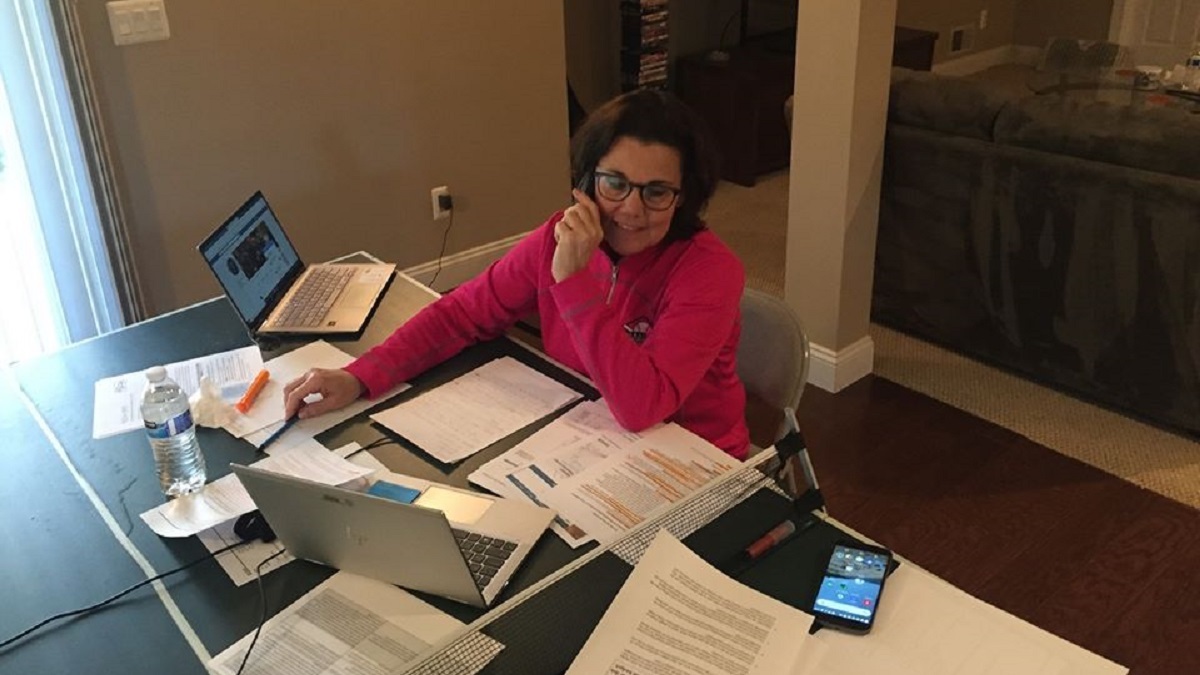Michigan State Rep. Ann Bollin (R-Brighton Township) during a coronavirus tele-town hall earlier this month | facebook.com/StateRepBollin
Michigan State Rep. Ann Bollin (R-Brighton Township) during a coronavirus tele-town hall earlier this month | facebook.com/StateRepBollin
State Rep. Ann Bollin (R-Brighton Township) is questioning why the state is mailing people absentee ballot applications for both the August and November elections even if they didn’t request it.
“While I understand the hardships placed on voters during the COVID-19 pandemic and the need to prepare for the unknowns of COVID-19, I think the best solutions will be found by collaborating and consulting with those closest to the problem and that is the local clerks,” Bollin said in a release. “I fail to see how spending the valuable and limited resources available through the CARES Act on the mass mailing of AV applications is prudent.”
Bollin also asked Secretary of State Jocelyn Benson to explain the financial cost of the statewide mass ballot mailing to cost, where the funds would come from and where she draws her authority under state election law to mail the applications.
“The state is facing an incredible fund imbalance due to the (pandemic) crisis and I truly believe the CARE dollars should be spent on election expenses that local clerks need and that meet the intent of the CARES Act – those expenses directly relate to COVID-19," Bollin said in a release. "For example, personal protection equipment for offices and election workers and additional tabulating machines.”
Bollin stated in the release that she asked Benson to explain if the decision to mail the applications was a top-manager mandate and if local clerks could provide their input.
“I have heard from many local clerks of their concerns that you are duplicating efforts and undermining their role as election administrators,” Bollin wrote to the Secretary of State’s office, as stated in the release. “This has been further exacerbated by the ambiguity in recent Bureau of Elections newsletters and the lack of transparency on the issue.”

 Alerts Sign-up
Alerts Sign-up